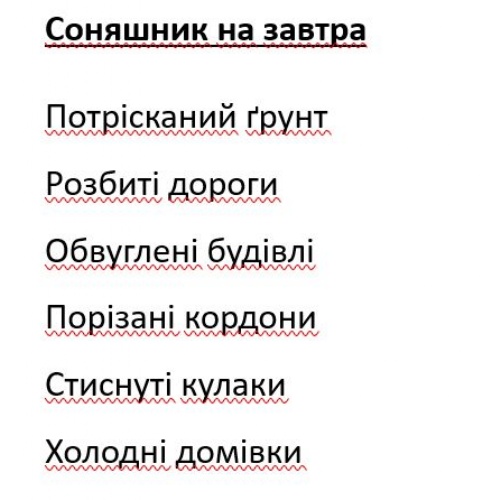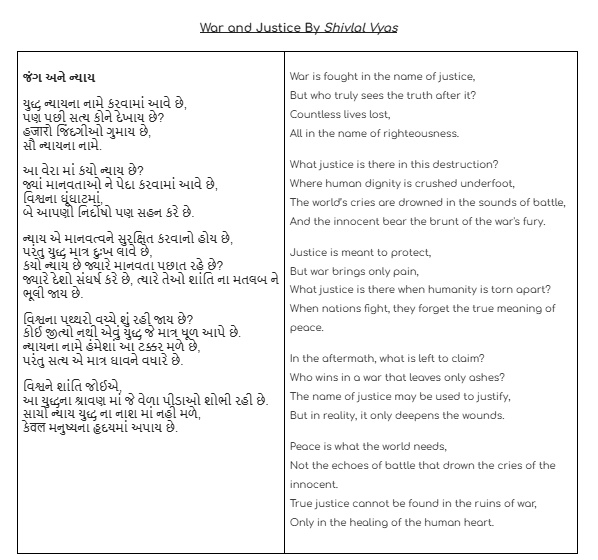Mother Tongue Other Tongue Poetry Competition

We are absolutely delighted to announce that Sofia Allen (Yr9) and Anwesha Vyas (Yr8) have been selected as finalists in the poetry competition Mother Tongue Other Tongue at the University of Warwick School of Modern Languages and Cultures. Huge congratulations to both of them!
All finalists’ entries across each key stage will be on display in The Chapterhouse in Coventry Cathedral from 2 July to 2 September during normal Cathedral opening hours, with the capacity for visitors to vote for their favourite poems. The University will use these public votes to inform their final decision on the winners for each key stage. These will be announced at the start of the year in September. The University has said that they were so thrilled with the quality of the work they received which was personal, creative and thought-provoking.
All of the schools’ entries they received (well over 100!) will be on display in individual folders in The Chapterhouse alongside the finalists, so we hope that lots of students and their families will visit the Cathedral over the summer break to view the exhibition and vote for their favourite poems. On display there will also be a specially commissioned poem “Airplane Brother” written in English and Hindi by the Coventry Young Poet Laureate, Aamani Kanda on the same themes of peace and reconciliation.
Sofia A, Year 9 – Mother Tongue
Соняшник на завтра
Потрісканий ґрунт
Розбиті дороги
Обвуглені будівлі
Порізані кордони
Стиснуті кулаки
Холодні домівки
Затягнуте хмарами небо
Залишаються рани, але й соняшники теж
З землі і печалі постає єдина краса.
Золотий вартовий надії.
Її полум'я, занурене в сонце, горить яскраво.
Чує крики війни, але не в'яне.
Її коріння росте глибоко, стираючи шрами війни.
Ніяка кров не може заплямувати її золоті пелюстки
Ніяке горе не важить настільки, щоб зігнути її стебло
Ніяка війна не може розбити її серце, осяяне сонцем
Ніякі кордони не зможуть закрити її сповнений надії погляд
Ніякий прапор не майорить сміливіше, ніж соняшник на вітрі
Тому я дарую тобі
Вінець світла.
Зерно миру.
Дорогу до справедливості.
Соняшник для завтрашнього дня
English translation
A Sunflower for Tomorrow
Cracked soil
Crumbled roads
Charred buildings
Cut borders
Clenched fists
Cold homes
Clouded skies
Some wounds remain, but so do sunflowers
From soil and sorrow a single beauty emerges
A golden sentinel of hope
Its sun- dipped flames burning bright
Hearing the cries of war, but still it does not wither
Its roots grow deep, erasing scars of war
No blood can stain its golden petals
No grief weighs heavy enough to bend its stem
No war can shatter its sunlit heart
No border can block its hopeful gaze
No flag waves more bravely than a sunflower in the wind
So here I give you
A crown of brightness
A seed of peace
A road to justice
A sunflower for tomorrow
Sofia's explanation
This is an original poem, inspired by Ukraine’s enduring spirit. The sunflower is a national emblem of Ukraine and is a symbol of light and peace. It is deeply embedded in Ukraine’s culture and has become an international symbol of resilience. I decided to include this powerful symbol in the poem to convey how, despite hardship, people must turn towards peace and avoid division. The moral of the poem is to portray the importance of perseverance and staying strong, however harsh life may seem.
I was born in Odesa, in Ukraine and my mother and her parents have lived in Ukraine their whole life. Even since moving to the UK, the language has become a permanent piece of me. The war in Ukraine has affected many families, including mine. It brought along feelings of fear, grief and overwhelming sadness. There is constant uncertainty of the future due to the threat of violence affecting family who still live in Ukraine, and sometimes it is hard to see the light at the end of the tunnel. That being said, we remain resilient and hopeful even when life is tough. We stay strong- just like the sunflower.
Anwesha V, Year 8 - Mother Tongue

Anwesha's explanation
The poem critiques the glorification of war in the name of justice. It argues that war, while often justified under the pretext of righteousness, causes immense suffering and destruction. True justice, the poem suggests, can only be found in peace and in the healing of human hearts, not in the aftermath of war’s devastation.
I chose the poem War and Justice because it has a strong and emotional message. It talks about the impact of war and the need for justice, which really made me think about what is happening in the world today. It made me feel grateful for the life I have and reminded me how important peace is.
The poem is in my mother tongue, Gujarati, which makes it feel more personal to me. I come from a Gujarati background, and speaking the language helps me stay connected to my roots. My grandmother lived through the Indo-Pakistan War in 1971, in Jamnagar, and she shared stories about that time. This poem reminded me of her experiences and how war can affect families.
It also reminded me of the Ukraine-Russia war that started a few years ago. I saw videos showing people having to leave their homes and move to other countries to stay safe. It was really upsetting to see how much people were suffering. I also learned how the war affected the whole world, with the economy going down and prices rising in many places. It made me realise how deeply war affects not just the people in the countries involved, but people everywhere.
I also speak English, and reading poems in both languages helps me express myself better and understand different points of view. This poem helped me connect me to my culture, my family history, and global issues all at once.